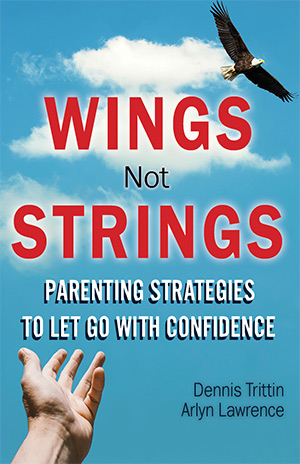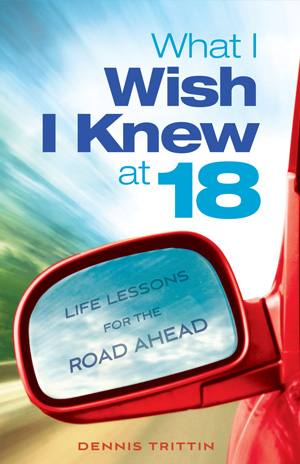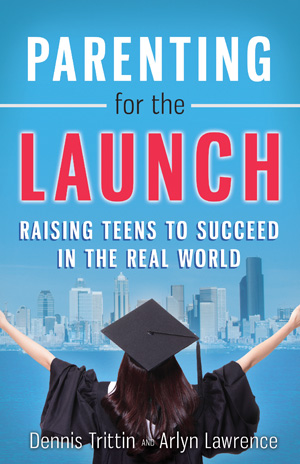4 Concerning Reports About Today's College Experience
Maybe it’s the time of year. Or, maybe it’s a sign of the times. If you ask me, it’s both…
Over the last several weeks, with a new school year upon us, I’ve been reading more concerning reports about today’s college experience. Some are from reflective faculty members who witness it firsthand, while others are from parents who are footing the bill and employers who are hiring young adults. No, they are not necessarily new issues, but the confluence and intensity are palpable. I realize these concerns cannot be generalized to all colleges, but from all indications, they’re becoming more pervasive and disturbing. But, before getting to the specifics, I’d like to prep you with a story…
Once upon a time, a group of music aficionados from all walks of life banded together to create an experience unlike any other. One to be enjoyed by people from every background and generation. One to celebrate what we know and love and to explore new possibilities. One so inspiring that people from all over would return in masses each year.
The event, America’s Virtual Music Experience, would be a week-long, outdoor summer festival that would celebrate the best of every music genre in our nation’s history. Individual stations would be set up for each category, and the audiences would be treated to all-time great performances (selected from fan surveys and music experts) that best represented the genres. In this smorgasbord of creativity and diversity, people could savor the best of: Rock and Roll, Folk, Jazz, Bluegrass, Gospel, Easy Listening, Hip Hop, Soul, the Blues, Country, Classic Rock, Pop, Rhythm & Blues, Spirituals, Metal, Americana, Funk, Disco, and Ragtime. Amazing! The founders were unequivocally committed to quality and variety to fulfill their mission. And fulfill it, they did.
Imagine the joy of three generations sharing their favorite music genres with each other. Grandpa loved Jazz. Grandma adored Gospel. Dad preferred Classic Rock, while Mom was an R&B fan. The son, oh how he worshiped Hip Hop, while the daughter was filled with Soul. Sure, their respective favorites would remain the same, but they left with new appreciation for the other genres they sampled. The energy on the way home was kinetic as they recounted their day. The memories would last forever.
Some five years later, the family decided to relive this, their all-time favorite experience. But something was different this time—they could sense it. Maybe the novelty had just worn off. Or, maybe there was more to it. After wandering around for a while, Grandpa was the first to notice something—there were fewer multi-generational families in attendance. What was that all about? Soon after, Grandma commented that her favorite Gospel station was nowhere to be found. Also, conspicuously absent were the Country, Americana, Easy Listening, and Jazz stations! Even some of this year’s song selections were lacking, unlike before.
At the same time, the grandson counted four stations devoted to Hip Hop, and the granddaughter noticed three for Metal! Sadly, they were really looking forward to the “forgotten” ones, because they enjoyed the variety as much as their favorites. Now, in order to experience them, they’d have to go elsewhere. But, why?
Curious, the mother and father called the event producers to find out why things had changed. They learned that last year, three of the five original founders retired, handing over the reins to some new faces. It just so happened that none of them were fans of Gospel, Country, Americana, Easy Listening, and Jazz, so they were deemed expendable (much to the chagrin of their sponsors!). But, because they loved Hip Hop and Metal so much, they decided to make room for more! And, they decided to select the songs by themselves, rather than go with survey results. Surely the audience wouldn’t notice it much, and besides, the new music mix was better anyway. Or, so they thought.
Clearly, the current regime did not share the founders’ unwavering commitment to diversity and quality, as they willingly changed the nature of the event. With each passing year, more of their least-favorite genres were dropped. Not surprisingly, the family never returned, and the reviews began to sour. You see, America’s Virtual Music Experience wasn’t the same inspiring, diverse, and universal experience anymore. It had lost the magic of the original.
So, what on earth does this has to do with college, you ask? Why did I even tell you this story? I created this analogy to capture the essence of the concerns I’m hearing:
1. Colleges have become increasingly politicized and biased. My college years were spent during the Vietnam War and Nixon debacle, as well as the Cold War and malaise of the Carter years. Despite that fodder, I cannot recall a single class where professors (who, in their power position, ought to be held to a higher standard) expressed political views in the classroom (much less proselytized them). Numerous reports indicate this is now widespread, especially among Humanities courses where professors are decidedly slanted toward one political party. This impacts free and open discourse, diversity of ideas, and objectivity, which are vital to achieving the college mission. It is also manifested in the worldview imbalance of professors, speaker selections for campus, fair treatment for clubs, shaming/canceling of professors with “minority” views, and incidences of grading bias. While some of this is anecdotal, it is well documented and contrary to the virtue of exploring best ideas without fear of retribution.
The solution? I recently read a profound meme from Kevin Tiddy: “If your students know your political affiliation, you have failed as a teacher. Teachers are there to help students think for themselves, not to think like you.” I couldn’t have said it better, and judging from the feedback from his post, many others agree. It’s beyond time for college presidents to put it into practice and demand accountability. #educationnotindoctrination.
2. Colleges are facilitating a “victim vs. victor” mentality, impeding grit and resiliency. Tenured professors and employers are reporting alarming fragility among students when dealing with challenges, classroom discussions, and even constructive feedback. While a certain degree of empathy is a good thing, colleges are increasingly displaying coddling behavior toward students rather than fostering grit and resilience and treating them as adults. This is ill-preparing their students for life in the real world.
3. College students are increasingly engaging in caustic communications instead of demonstrating civil discourse, mutual respect, and conflict resolution skill. Newfound independence often comes with a price of arrogance and boldness in young adult communication. Nonetheless, we are witnessing growing verbal aggression with both peers and adults. Sadly, I’ve read and heard numerous reports from devastated parents who “no longer recognize” their young college student and are unable to carry on a civil conversation or be treated with respect. While colleges are designed to expose students to new ideas, it appears they are failing to teach students the responsibility of disagreeing in an agreeable manner. This is an urgent need.
4. College students are increasingly revealing socialistic and anti-American tendencies. It is quite baffling that today’s entrepreneurial young adults are increasingly supportive of Socialism. Granted, they may be new to economic and political philosophy (so some naivete is understandable), but these concerning views aren’t just happening by accident. Related, it often appears that in our attempts to celebrate diversity (a worthy cause!), some institutions are unintentionally causing disunity and disharmony. If we don’t also consider what unites us as Americans, we lose societal cohesion. We need both.
Like the successors to the founders of the American Virtual Music Experience, it seems like many colleges have lost their way, and their sense of what made them great in the first place. Whether intentional or not, we’re seeing the profound effects in many ways.
It’s time for colleges to take stock and reset. Let’s get back to scholarship, citizenship, and leadership.
Tagged as: college, teens, college experience, college readiness, politics, what I wish I knew at 18, 2020



















